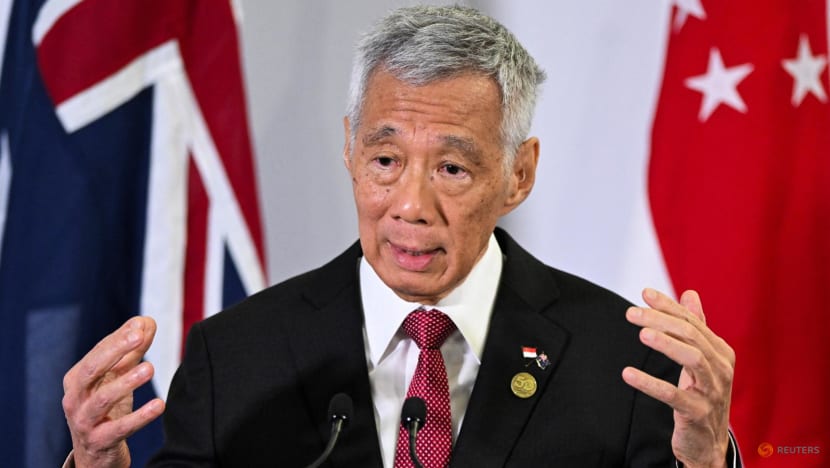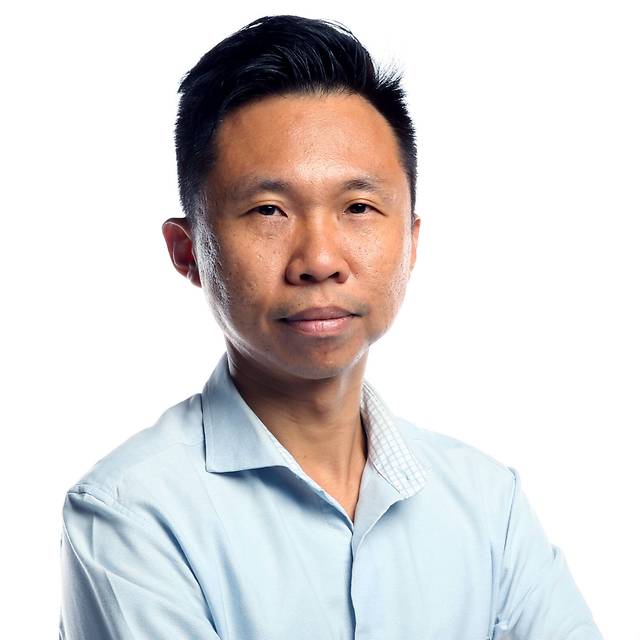Australia’s continued engagement with ASEAN critical for stability in region, amid great power rivalry: PM Lee
Australia has a long-standing relationship with ASEAN since 1974, and is the bloc’s first and oldest dialogue partner.

Singapore's Prime Minister Lee Hsien Loong speaks during a joint press conference at the ASEAN-Australia Special Summit, in Melbourne, Australia on Mar 5, 2024. (Photo: REUTERS/Jaimi Joy)
MELBOURNE: Singapore’s Prime Minister Lee Hsien Loong has urged Australia to remain deeply engaged with the Association of Southeast Asian Nations (ASEAN) to maintain stability in the region, as both sides chart their next phase of ties.
Australia has had a relationship with the bloc since 1974, and is its first and oldest dialogue partner.
Besides strengthening partnerships in areas such as trade, investment and clean energy, Australia is also pumping in more funding for maritime cooperation.
BOOSTING REGIONAL COOPERATION
Mr Lee told leaders at the recently concluded ASEAN-Australia Special Summit in Melbourne that such engagement is welcome.
“We see them as being valuable because economically, they are a partner. Strategically, they are very close to the United States and allies of the United States,” he told members of the media on Wednesday (Mar 6).
“And to have them part of our regional cooperation helps to keep this region open, and to involve more parties with an interest in the stability and prosperity of Asia.”
Australia can play an important role in the East Asia Summit, an ASEAN-led forum of major countries and an inclusive platform to discuss issues concerning the region.
Mr Lee called for the forum, which includes partners such as China and the US, to be strengthened to mitigate big-power rivalry in the region.
He said doing so would reduce the risk of a “spiral into open conflict”.
ASEAN members work together in areas of common interest, despite having different strategic situations and views.
Mr Lee told leaders at the special summit that this has been the bloc’s long-standing aim.
Speaking to reporters later, he said Australia is well-positioned to complement the efforts.
“It affects them because there’s a lot of business with this region. It affects their security,” said Mr Lee.
“Because if anything goes wrong in Southeast Asia or in Asia, that’s going to impact on Australia and it’s an area where a lot of their trade goes through.”
ASEAN FACES VARIOUS CHALLENGES
The meeting of regional leaders took place amid heightened tensions in the South China Sea. The Philippines and China are engaged in a maritime row, after a vessel collision left Filipino crew members injured.
But that is not the only challenge that ASEAN faces.
In Myanmar, the army is preparing to enlist its first batch of civilians in April, after it enforced a dormant military enlistment act in February.
Many observers fear that this move would spark a new wave of violence, on top of the ongoing conflicts in the country.
Meanwhile, ASEAN's position has been to stick to the Five-Point Consensus, a peace plan with the Myanmar army to resolve the crisis. ASEAN leaders agreed on the consensus during a meeting in April 2021.
The regional grouping is set up to move forward, even if its members and partners have different approaches to issues.
Australia, for instance, has downgraded diplomatic ties and slapped targeted sanctions on Myanmar's military.
PM Lee said the situation in Myanmar has worsened.
“We have the Five-Point Consensus on ASEAN's stand, which makes our stand clear. And we also have an arrangement which allows ASEAN to continue to cooperate with many external partners – Australia, EU, America,” he added.
“They have different views, not quite the same position as us in ASEAN, but they can live with that Five-Point Consensus and so our cooperation is not hindered.”
CALLS FOR RESTRAINT IN SOUTH CHINA SEA
On Wednesday, Australia and ASEAN wrapped up the three-day summit marking 50 years of partnership.
During the meeting, leaders called for restraint in the South China Sea and a lasting ceasefire in the Gaza Strip.
This comes as some ASEAN members, including Indonesia, Malaysia, and the Philippines, have overlapping claims with China over parts of the South China Sea.
A joint statement called for a rules-based order in the Indo Pacific, urging nations to avoid unilateral actions that could endanger peace.
Australian Prime Minister Anthony Albanese said: “I am very concerned, and Australia is concerned about any unsafe and destabilising behaviour in the South China Sea.
“It is dangerous and it creates risks of miscalculation, which can then lead to escalation. So we would call upon a number of nations emphasised in their statements, the foundation document is UNCLOS, the UN Convention on the Law of the Sea, that is something that should be the guide for all nations' participation.”


















